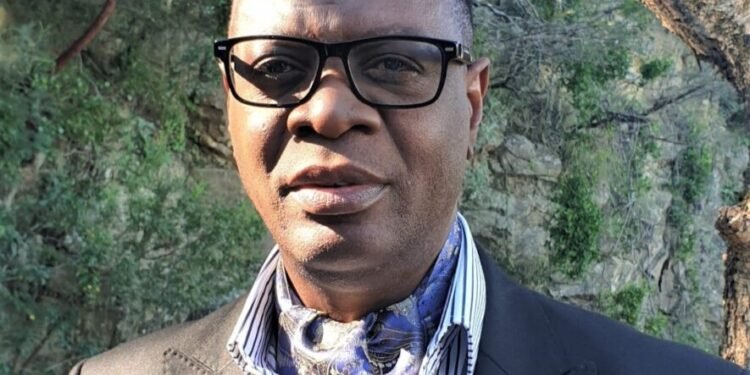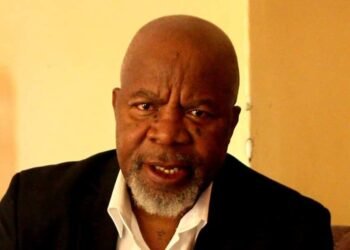Consultation or choreography? Inside the farce of Zambia’s constitutional reform process
…A flawed process masquerading as public participation undermines the very Constitution it seeks to amend.
By Prof Cephas Lumina
LAST week I argued that the Technical Committee on Amendments to the Constitution, appointed on October 2, 2025, was illegal from inception, having been created under a misreading of Article 92 of the Constitution. The committee’s establishment, I contended, offends Articles 5, 8 and 90, which enshrine the national values of democracy, constitutionalism, good governance, integrity and the sovereignty of the people.
This week, I focus on the Committee’s ongoing process of “consulting” citizens – a process that not only adds to the illegality of its creation but also undermines the principles of transparency, accountability, inclusivity, and genuine participation that our Constitution and any constitutional reform process demand.
A process built on restriction, not participation
The joint statement issued on October 31, 2025 by eight civil society organisations, including Advocates for Democratic Governance Foundation, Alliance for Community Action, Chapter One Foundation, the Christian Churches Monitoring Group, the Free Press Initiative, Media Institute of Southern Africa (MISA-Zambia), Transparency International Zambia, and the Zambia Council for Social Development, lays bare the defects of the process.
Their findings after monitoring “consultations” in five provinces (Central, Eastern, Northern, North-Western, and Western) from October 27 to 29 2025 are damning: citizens remain largely unaware of the exercise due to inadequate publicity and poor information dissemination; venues are poorly publicised or announced at the last minute; there are no clear procedural guidelines, with citizens sometimes being subjected to leading or suggestive questioning which appeared calculated to pressure them into changing their original positions; translation and accessibility measures are absent, excluding a “significant portion” of citizens who cannot communicate in English; and, most gravely, citizens have been observed signing pre-written submissions for payment.
These failings are not just about procedure; they are constitutional issues. Article 8 of our Constitution requires all State organs to uphold democracy, constitutionalism, human dignity, equity, social justice, equality, non-discrimination, good governance and integrity. Article 90 requires the Executive to exercise authority “for the people and in accordance with “social justice” and “for the people’s well-being and benefit.” When citizens are manipulated, exploited, uninformed or excluded, these principles are violated.
The eight organisations are right to describe the process as “fundamentally flawed, restrictive, and inconsistent with the principles of transparency, accountability, inclusivity and genuine participation”. Indeed, a consultation that decides the outcome in advance is not consultation at all; it is choreography.
“A consultation that decides the outcome in advance is not consultation at all; it is choreography”
The shadow of Munir Zulu
The Constitutional Court’s judgment in Munir Zulu and Another v Attorney General (June 2025) provides the legal and moral yardstick against which any constitutional-reform process must be assessed. The court emphasised that public participation is not a decorative exercise but a constitutional imperative that legitimises law-making itself. It directed that future reform processes must be citizen-driven, transparent, and inclusive – words that should ring in the ears of every public official involved in the current exercise.
Yet the Technical Committee’s conduct subverts that very directive. Its tightly choreographed schedule, confined venues and selective publicity exclude precisely those voices the court sought to elevate. The spirit of Munir Zulu demands a process that listens broadly and deeply; instead, we are witnessing one that listens narrowly and selectively.
A contradiction in the Solicitor-General’s own words
Ironically, Solicitor-General Marshall Muchende himself seemed to understand this when he told Radio Phoenix (as reported by News Diggers, October 24, 2025):
“Let’s hear the people speak instead of us being overwhelmed by those that are flooding social media with their narratives. Why don’t we hear from a person in Lundazi, a person in Shang’ombo, in Kalabo … that person who actually has no access to the information superhighway?”
A noble sentiment. But the committee’s approach – holding consultations in only one locality per province – achieves the opposite. Citizens in outlying districts are effectively disenfranchised. How does one “hear from the person in Lundazi” when the only meeting in Eastern Province is in Chipata? How can the citizen in Shang’ombo or the citizen in Kalabo contribute when the process stops in Mongu for a single afternoon?
This contradiction exposes the government’s rhetoric of inclusion as hollow. Limiting consultations to one centre per province converts participation into a privilege of proximity. It betrays the very inclusivity that the Solicitor-General professes to champion and that Article 8 enshrines as a national value.
When “consultation” becomes performance
The organisations reported instances of citizens being coached to recite or sign off on pre-determined submissions in support of government proposals, often for payment. If true, this practice crosses the line from manipulation to fraud upon the Constitution. It replaces deliberation with deception and converts public engagement into a paid performance.
Such conduct undermines the sovereignty of the people affirmed in Article 5. A process tainted by inducement cannot produce a legitimate consensus. It breeds cynicism and erodes the moral authority of any resulting amendments.
The Constitutional Court in Munir Zulu warned precisely against this – against “tokenistic engagement” that masquerades as participation while decisions are made elsewhere. By ignoring that caution, the committee has ensured that whatever text emerges from its work will rest on the quicksand of illegitimacy.
The missing delimitation report
One of the government’s flagship proposals is to increase the number of constituencies to give effect to the Delimitation Report. Yet the Report itself has never been published. How, then, can citizens offer informed views on a proposal whose factual basis is concealed?
A meaningful consultation requires information symmetry: the people must know what they are being asked to endorse. In the absence of the Delimitation Report, the exercise becomes an act of blind consent-asking citizens to sign a document they have never read. This secrecy contradicts both transparency (Article 8(e)) and accountability (Article 90).
Why the rush, then, to amend the Constitution before the August 2026 elections? The government has offered no credible explanation for its urgency. The logical inference is political expediency: that the amendments are tailored to secure partisan advantage, not national progress. A people-driven process would move deliberately; a power-driven one rushes to beat the clock.
Speed over substance
The committee’s compressed timeline, with only ten days of hearings for such an important issue, makes genuine consultation and participation impossible. The Constitution is not an ordinary law; it is the country’s social contract. Rushing its amendment erodes the reverence it deserves.
Across comparative jurisprudence, courts have struck down constitutional reforms that sacrificed deliberation for speed. In Doctors for Life v Speaker of the National Assembly (South Africa, 2006), the Constitutional Court invalidated statutes passed without adequate public participation, holding that “the opportunity to participate must be real, not illusory.” The same logic applies here. A process that invites citizens but denies them the time, information, and accessibility to respond meaningfully is not real consultation; it is consultation theatre.
The constitutional logic
The defects of the consultation process reinforce what I argued last week: the Technical Committee’s very existence under Article 92 is unconstitutional. Article 92 authorises the President to appoint persons for “special duties for the Executive,” not to engineer constitutional reform. By extending administrative authority into the realm of constituent power, the Executive has breached the doctrine of constitutional supremacy (Article 1 (2)) and the sovereignty of the people (Article 5).
When an unconstitutional body undertakes a flawed process, illegality compounds illegality. The committee’s restrictive approach is therefore not merely administratively deficient; it is unconstitutional.
As the eight organisations note, “the Constitution is the supreme law of the land. It is therefore imperative that the process of amending it be citizen-led, participatory, and legitimate.” Those words should end the debate. A process that fails those tests must stop.
Why legitimacy matters
Constitutions last not because governments enforce them but because citizens believe in them. Every amendment process is a test of that belief. When people see consultations stage-managed, timelines compressed, and dissenting voices marginalised, they lose trust in the government.
Unlawful changes to the Constitution damage society. They show people that rules can be changed from the top, that participation is just for show, and that sovereignty is only a word. When this happens, even a lawful constitution starts to lose its moral force.
A truly “listening” government would pause and reset
Stopping the current process would not block progress; it would restore it. If the government wishes to live up to its self-description as a “listening” government, it must demonstrate that by returning to constitutional principles and by acting transparently, lawfully, and for the “people’s benefit” as mandated by the Constitution.
A credible path forward would include:
- Publishing the Delimitation Report and all related documents so that citizens can engage based on facts rather than speculation
- Redesigning the consultation process so that every district is included, using translation, community radio and civic education to reach people without internet access
- Disbanding the current Technical Committee and re-constituting a lawful, broad-based body under proper statutory authority.
The Munir Zulu judgment already provides a lawful and legitimate blueprint for this. To press ahead regardless would invite further litigation and deepen public mistrust of whatever amendments emerge.
Failure to pause now would only reinforce the perception that the government’s urgency is driven not by national interest but by narrow political calculation: securing electoral advantage, insulating itself from accountability, and entrenching power ahead of the next election.
A government that truly listens knows that legitimacy cannot be decreed; it must be earned through openness, inclusion, and respect for the people’s sovereignty.
Conclusion: Legality, legitimacy and the people
The Technical Committee’s consultation process is not just flawed; it is antithetical to constitutionalism. Its restrictiveness, selectiveness and manipulation turn what should be a national conversation into an Executive monologue. It violates both the letter and the spirit of our Constitution and defies the guidance of our highest court on constitutional matters.
Unless the government halts and redesigns this exercise, any product of the committee will carry the indelible stain of illegitimacy. The Constitution cannot be rebuilt on a foundation of illegality; nor can sovereignty be borrowed from the people for convenience.
The country deserves better: a process that listens before making changes, informs before asking for support, and brings people together before amending the Constitution. Anything less is not real reform. It is a step backward disguised as participation.
Prof Cephas Lumina is a constitutional and international human rights lawyer.

























